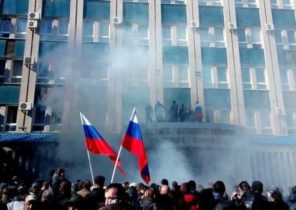
Russia violated the promise of the nuclear powers to respect the sovereignty of Ukraine not to use military force against it. The Minister of foreign Affairs Pavel Klimkin told the UN, the press service of mission of Ukraine in the Organization.
“As you know, Ukraine is opposed to aggression on the part of States possessing nuclear weapons. A gross violation of international obligations, including in accordance with the Budapest Memorandum of 1994, it undermines the entire security system. In this regard, you can also recall the commitment of the nuclear States “to respect fully their existing commitments regarding security assurances,” – said the Minister.
SEE ALSO
- In Russia estimated the likelihood of nuclear attack on Ukraine
Klimkin said the UN members like Russia more than three years ago Russia has not only carried out an act of military aggression against Ukraine.
“Violating the Budapest Memorandum, it (Russia. – Ed.) also demonstrated that the promise of the nuclear powers to respect the independence and sovereignty of Ukraine, to refrain from military threats, and that none of their weapons will ever be used against Ukraine except in self-defence or otherwise in accordance with the UN Charter. The statements of Russia that it has not violated the Budapest Memorandum, because nuclear weapons were not used against Ukraine is another cynical manipulation of the facts,” – said the Minister of foreign Affairs of Ukraine.
The Budapest Memorandum in 1994 signed by Ukraine, USA, UK and Russia. In return that Kiev refused the proliferation of nuclear weapons, the other three countries – the U.S., Britain and Russia pledged to guarantee Ukraine’s security and territorial integrity. How was the refusal of Kiev from the world’s fourth largest nuclear potential and what it led to, read here.
As recently told former U.S. Secretary of state John Kerry, the terms of the Budapest Memorandum in relation to Ukraine, Americans do not run, not to provoke more instability.







